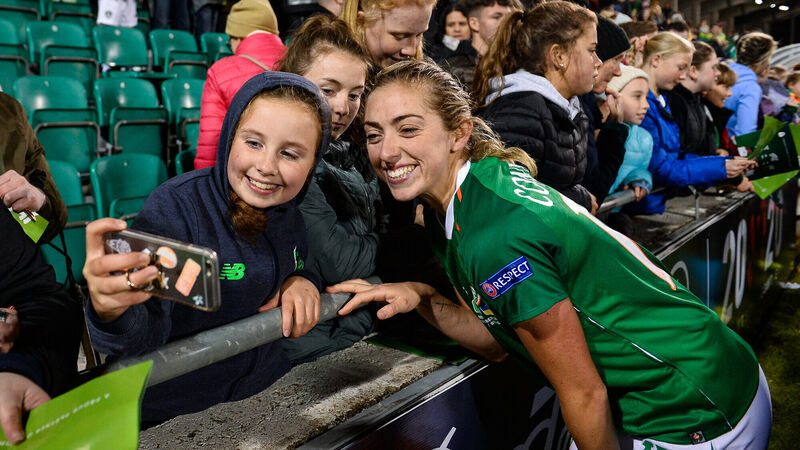Tommy Martin: It might be up to Ireland's men to ensure women get equal slice of the pie

Megan Connolly of Republic of Ireland poses for a selfie following the UEFA Women's 2021 European Championships qualifier match against Ukraine. Picture: Eóin Noonan/Sportsfile
As an reader and therefore a person of culture and discernment, I’m sure you like to keep up with Parisian literary concerns.
You’ll be aware, then, that the latest sensation in French publishing is a book entitled . Which, being French, sounds lovely, but actually means — and there’s no real way of sugar-coating this — I Hate Men.









